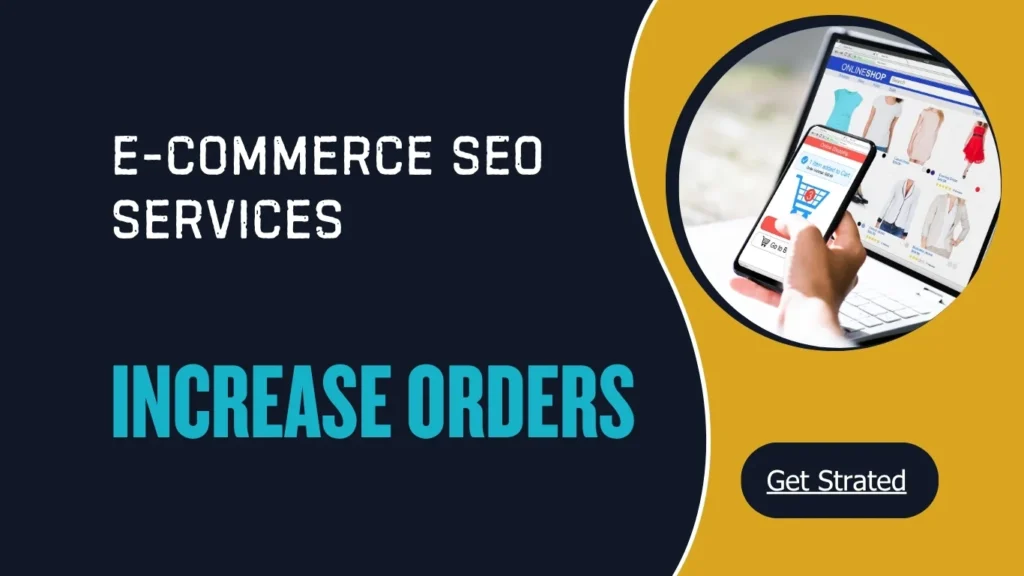Ecommerce SEO: Master Strategies to Outrank Competitors in 2026

Introduction: Why Ecommerce SEO is Your Competitive Edge
Ecommerce SEO isn’t just a marketing tactic; it’s a necessity. With global e-commerce sales reached more than $6.42 trillion in 2025, businesses that optimize their online presence are poised to capture a significant share of this growing market. Effective Ecommerce SEO ensures your online store ranks higher in search engine results, making it more visible to potential customers. This increased visibility leads to more traffic, higher conversion rates, and ultimately, increased sales.
1. Conduct Thorough Keyword Research
Keyword research is the cornerstone of any successful Ecommerce SEO strategy. Identifying high-intent keywords—those that potential customers are actively searching for; allows you to tailor your product descriptions, blog posts, and metadata to meet their needs. Mix primary, secondary, LSI, and NLP keywords naturally to ensure your content aligns with search engine algorithms. Categorize keywords by intent: informational for blogs, transactional for product pages, and navigational for brand-specific searches. Proper keyword research ensures that your Ecommerce SEO efforts attract targeted traffic and improve conversions.
2. Optimize Product Pages for SEO
Optimizing your product pages is critical for Ecommerce SEO. High-ranking product pages attract more organic traffic and convert visitors into buyers. Focus on the following:
- Unique Product Descriptions: Avoid copying manufacturer content; highlight features, benefits, and use cases.
- High-Quality Images: Use descriptive filenames and optimized alt text, e.g., “mens-running-shoes-under-3000.jpg”.
- Structured Data: Implement Schema.org markup to enable rich snippets with prices, ratings, and availability.
- Internal Linking: Connect related products or categories to distribute page authority and improve navigation.
Well-optimized product pages enhance visibility, build credibility, and directly support your Ecommerce SEO goals.
3. Improve Site Structure and Navigation
A clear site structure benefits both users and search engines. Logical hierarchies, such as Home → Category → Subcategory → Product, make navigation intuitive and allow search engines to index pages effectively. Breadcrumbs help users understand their location within your site and strengthen internal linking, which supports Ecommerce SEO. SEO-friendly URLs, like /mens-running-shoes, improve rankings and user experience. Fast-loading pages and mobile responsiveness further enhance your store’s visibility and conversions.
4. Technical SEO for E-commerce Sites
Technical SEO ensures your website functions smoothly and ranks well. Focus on these elements:
- Mobile Responsiveness: With over 70% of online shopping happening on mobile devices, a mobile-friendly site is essential.
- Site Speed: Compress images, use a CDN, and reduce scripts to improve loading times.
- SSL Certificates: Secure HTTPS websites are trusted by both users and search engines.
- XML Sitemaps & Robots.txt: Guide search engines to important pages and prevent indexing of duplicates.
- Structured Data: Enable rich snippets with product details to boost click-through rates.
Maintaining a technically sound website strengthens your Ecommerce SEO foundation and ensures better rankings.
5. Content Marketing and Blogging
Content marketing attracts and educates potential buyers while supporting your Ecommerce SEO strategy. Blog posts, buying guides, and product comparisons bring organic traffic to your store and provide opportunities for internal linking.
For example, a fitness gear store could write posts like “How to Choose the Best Running Shoes” or “Top 10 Home Gym Essentials”. Incorporating secondary and LSI keywords, such as “SEO for category pages” and “improve product visibility”, naturally reinforces your Ecommerce SEO efforts. High-quality content also builds trust, keeping customers engaged and more likely to make a purchase.
6. Building Backlinks and Social Proof
Backlinks and social proof are key to establishing authority and credibility. High-quality backlinks from relevant blogs, influencers, or publications signal trustworthiness to search engines, improving your Ecommerce SEO rankings. Encourage customer reviews and testimonials, showcasing them prominently on product pages. Positive reviews increase engagement, support conversions, and enhance search engine visibility. Combining authoritative backlinks with strong social proof ensures your store attracts more customers before competitors.
7. Monitor, Analyze, and Adjust
Monitoring performance is essential for ongoing Ecommerce SEO success. Use Google Analytics and Search Console to track organic traffic, bounce rates, keyword rankings, and conversion rates. Regularly auditing for broken links, duplicate content, and technical issues ensures your site stays healthy. Adjust your content and SEO strategies based on data insights to continually improve rankings and visibility. Active monitoring helps your store maintain a competitive edge and attract more targeted traffic.
Conclusion: The Road Ahead for E-commerce SEO
Optimizing your online store with Ecommerce SEO is vital for visibility, traffic, and sales. Continuous efforts in keyword research, product page optimization, technical SEO, content marketing, and backlink building keep your store competitive. By implementing these strategies in 2026, your online store can attract more customers, improve rankings, and increase conversion rates. The earlier you focus on Ecommerce SEO, the faster your store will outperform competitors and achieve sustained growth.
1: How long does it take to see results from Ecommerce SEO?
Typically 3–6 months, depending on competition, website structure, and optimization quality.
2: Is mobile optimization important for Ecommerce SEO?
Yes, mobile-friendly websites are critical, as most online shopping is done via smartphones and tablets.
3: Can social media impact Ecommerce SEO?
Social signals indirectly affect SEO by driving traffic and engagement, which supports your overall E-commerce SEO strategy.
4: How often should I update my product pages for SEO?
Regularly updating descriptions, images, and structured data keeps your store fresh and aligned with SEO best practices.
5: What tools are best for Ecommerce SEO?
Google Analytics, SEMrush, Ahrefs, and Google Search Console are essential for tracking performance and optimizing your E-commerce SEO strategy.
